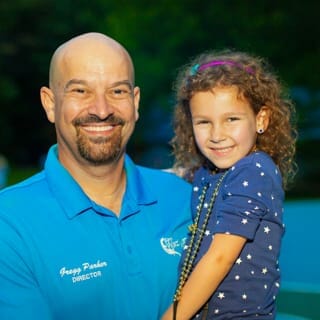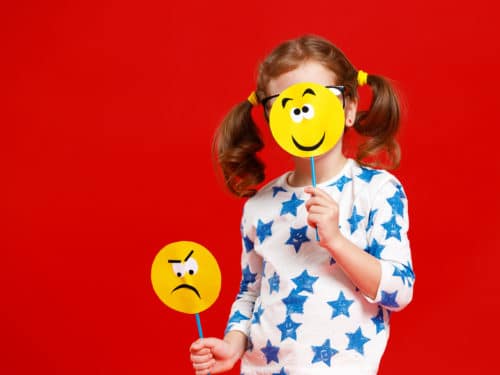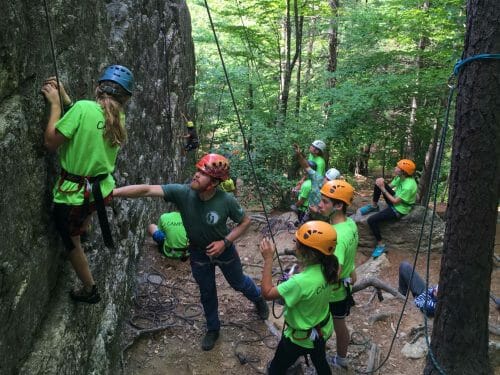Making the Best of it: Synthetic Happiness and Homesickness at Camp

By Gregg Parker
Have you ever heard of Pete Best? Probably not. He was the drummer who was kicked out of the Beatles just a moment before they became the most famous rock band in history. You would probably be surprised to hear that he says he’s actually happier than he would have been as one of the Fab Four. He famously said: “Some people expect me to be bitter and twisted, but I’m not. I feel very fortunate in my life,” and he means it. This is what is known as “Synthetic Happiness” and it’s the same thing that happens to certain kids at summer camp.
Synthetic Happiness and Homesickness at Camp
Synthetic Happiness is a term coined by Dr. Dan Gilbert, a Harvard psychology professor, and it relates to a type of happiness that comes when we DON’T get what we want. Basically, science says that human beings are great at imagining the future. They imagine what will happen and what they might get, or have, or be, somewhere down the line. Unfortunately for all of us, the future doesn’t really care what we hoped it would be. Things happen. That we can’t change. What we can do is change how we feel about them, and this is all important in the camp environment. Synthetic happiness is the happiness we MAKE when we don’t have a choice. Often people are happier than you might expect in ways you never would have imagined, like the wrongly convicted man who spent his life in prison who said his life was “glorious”, or the people who say that their life is infinitely better and more meaningful after a devastating loss or accident. What the human mind has done in many of these cases is to basically make the best of it. They didn’t have a choice, so there was no decision to make about it. Unfortunately, when people do have a choice, they make the worst of it. Gilbert’s fascinating research shows that people are terrible at making decisions. Have you ever wished that you picked something else on the menu, or could go back in time and avoid that horrible relationship or job? Have you labored over a hard decision and felt like whatever you did would be the wrong choice? We second guess our decisions and often ruin what good we do experience, all because we’re so good at imagining. In this case, we imagine what would have been if we’d made a different decision, or we can’t live up to what we did imagine, and those thoughts definitely don’t make us happy.
When kids come to camp, they have many new situations to deal with. We as camp directors have created a very kind and welcoming environment to make sure that they adjust quickly and easily. However, when kids feel homesick (a very natural experience that is one of the most important parts of growth at camp – see my article “Homesickness, the Do’s and Don’ts”), they would very much like to avoid that feeling at all costs. This is natural. If you feel bad, sad or “sick”, you generally try to change that feeling as fast as you can. But the problem here is that quitting when things get tough is something most parents would not knowingly teach their child. So how do kids get through this feeling of homesickness? Here’s where synthetic happiness comes in.
Sometimes, parents inadvertently make things harder for their kids when they are trying to help them. You’ve heard of “helicopter” parents, but how about “snowplow” parents? This is a term for parents who continuously clear the way for their kids. It would seem like the job of any parent to help keep their kids from getting hurt and removing obstacles could help to do that. However, the problem is that if you remove all the obstacles for your children, they won’t learn what will trip them up. They end up having no mechanism to avoid obstacles themselves. And worse, they won’t learn how to get back up when they fall. How will a child like that handle life’s many obstacles that their parents can’t be there to remove? In short, snowplow parents are robbing their kids of one of the most important life skills – resilience. Read any article on successful people and you will see that they aren’t successful because they have never failed. They’re successful because they have failed – then recovered. They learned from their mistakes, their missteps, their falls and failures, and they got back up and got stronger from it. That’s what I want for my children – resilience. If life knocks them down, I want them back up fast, and better for the trouble. I often tell parents that their kids need to take a few falls on water skis before they get up that first magical time, and oh, what a feeling it is. I often tell our camp staff and campers that “The harder the climb, the better the view.” The view isn’t better because it’s a higher mountain. The view is better because it was a hard climb and you know it when you reach the top. That sense of accomplishment and pride is something any parent would want their children to have and when kids get over homesickness, they know that feeling of strength and pride. I find this to be true, even in our youngest campers.
However, when parents, trying to help, give their kids an “out”, they make it extremely hard for them. Telling a child that if he doesn’t like camp, he can come home, or even implying it, they see that “out” on the horizon when they feel homesick. When the climb gets tough, they think that naturally, their parents don’t want them to be sad or unhappy so they will fix the problem for them. They think that if they can just get word to a parent that they are unhappy (and they’re smart enough to know which of their parents is more of a pushover) that mom or dad will come pick them up. When I speak to parents about this, they agree (with a very rare few exceptions) that coming home would teach the wrong lesson – namely that when the going gets tough, it’s ok to quit. So if a child has homesickness that is lasting a bit longer than normal, I get word to parents. Parents usually write a letter to their camper that basically says “You’re staying, and that is our decision. We’re proud of you and we know you’re strong and you’re going to have a great time at camp”. Then, here’s where it gets really interesting. Once kids know that they don’t have a choice (or an “out”), they are absolutely fine. I have seen this more times than I can count. Again and again, as soon as kids realize that their parents are standing strong on this matter, they stop worrying about it and they get over homesickness – many times, immediately. It’s like the flipping of a switch. Suddenly, all that worry is gone and they are moving forward, having fun, smiling, making friends and enjoying camp. This is synthetic happiness in action. They know there is no way to quit, so they make the best of it and make themselves happy.

It’s important to keep in mind that kids who don’t believe there is an “out” do a lot better at camp. They don’t think about leaving so they don’t dwell on home so much. They get over homesickness more quickly and move on to fun. Inevitably, parents who prepare their kids for camp properly (Meaning, among other things, that they don’t do the “don’ts” in the article I referenced above) generally have much less of a problem with homesickness. And it must also be mentioned that this kind of intervention, one in which a parent must remind a homesick camper that they won’t allow them to quit, is a rarity. Still, the psychology is important for all campers. Kids who are told “If you don’t like camp, I will come and get you” or just “give me a call” often have the hardest time with homesickness. They can’t make that happiness for themselves because a parent has given them a very difficult decision to worry over. They have to weigh the fun they are having at camp against missing home. This takes kids “out of the moment” and gets them thinking about home when they should be having adventures, making friends, trying new things, getting out in the great outdoors, laughing and playing and becoming better kids in the process. And in many ways, as I have said in other articles, living in the moment could be considered the purpose of camp, perhaps the key to the experience of childhood, and maybe even the key life in general. As a parent, I’m sure you want your kids to be happy. That’s why I always counsel parents not to make it harder for them by giving them an out. Give them a solid foundation and the tools to make their own happiness and they will be stronger, more resilient, and in the end, happier for it.
Topics:
More Wazi Wisdom
Visit the Blog




